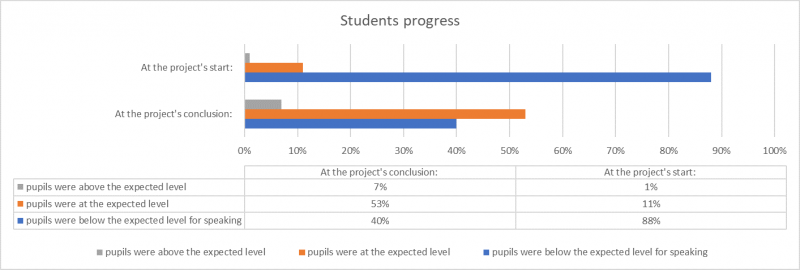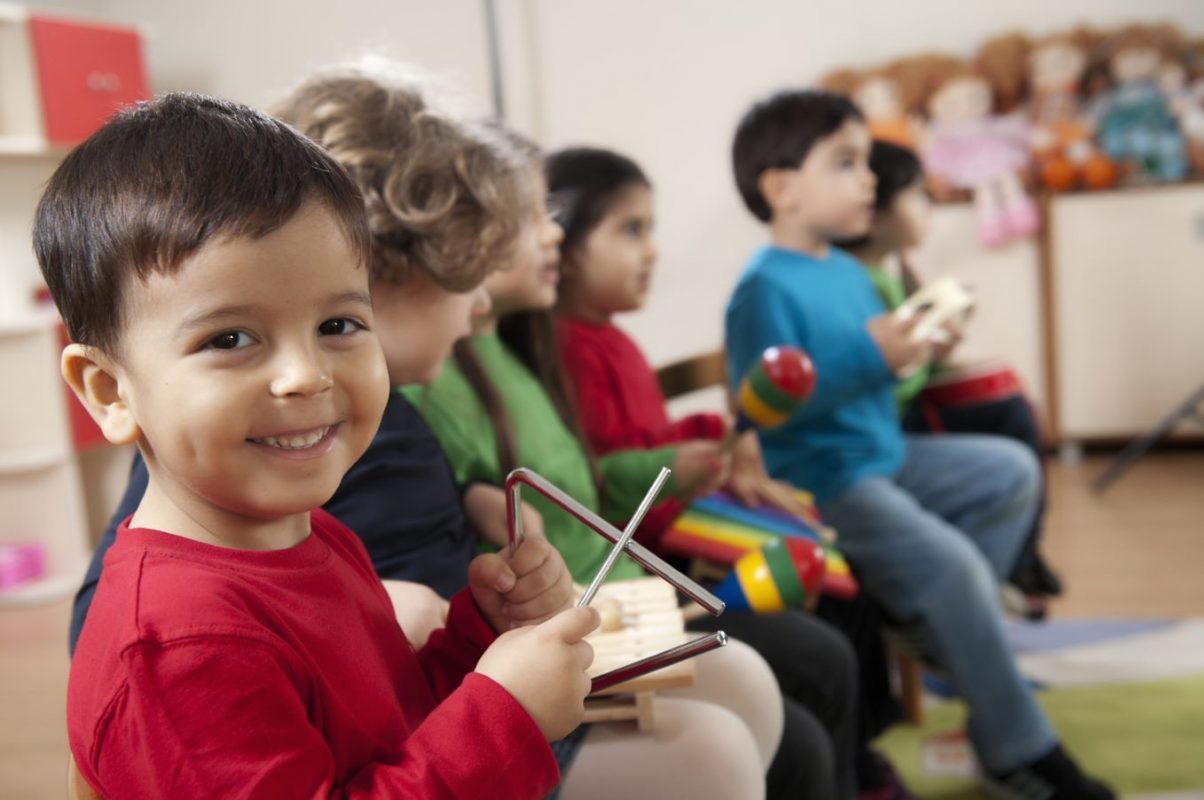Soundtots, is a musical intervention helping children reach a progressive level of development during their time in the early years foundation stage (EYFS).
It was May 2018 when Services for Education began the activities of the Soundtots project; an exciting programme of music-making and singing activities, tailored specifically to early years children (4-5 years old), supporting the development of key life skills.
And it is today, that we share our journey of the process, successes and the positive impact that Soundtots has created just one year on. Join us, as we reflect on the positive impact Soundtots has had on these young people and how it has helped to reshape positive change in their lives.
The programme was led by Vocal/Music Specialists from Services For Education (SFE) Music Service and targeted Early Years Foundation Stage (EYFS) settings in four of the most disadvantaged wards of central Birmingham (Soho, East Handsworth, Lozells and Shard End) – areas with a below average number of pupils achieving school readiness goals and below average language development.
The Importance of Soundtots:
3-year-old children from disadvantaged backgrounds will have heard on average 30 million fewer words than children from affluent backgrounds and also possess half the vocabulary.
However, the right environmental support has the potential to make a real difference in children’s language learning, and consequently, to their later academic success / life chances.
Sessions were structured around the three “characteristics of effective learning” (playing and exploring, active learning and creative and thinking critically ) so that children learn to explore, to be engaged and motivated to develop their thinking skills by making links in their learning through music.
We used the quality framework to focus on two areas of assessment, which proved very effective:
1) Speech and language goals from the nationally recognised ‘Development Matters‘; and
2) Progression in music making assessed through ‘Sounds of Intent’ measuring pupils’ interactive, proactive and reactive engagement.
The 20-week programme has been based on research led by Professor Adam Ockelford and responds to Public Health England’s suggestion for evidence-based activity that promotes the most effective types of language- boosting interactions.
Interestingly, pupils took many different routes in their music making journey, but all embedded the layered skills shown on the wheel Sounds of Intent assessment.
Sounds of Intent measures engagement of music-making and this linked with Speech & Language development.
The Impact of Soundtots:
Delivery staff recorded in their journals observations regarding pupils’ spoken contribution in any session – including how often they spoke and the level of the language used. Anecdotally Speech & Language development increased in all areas.
The Soundtots Team’s observation and recording showed increased confidence in improvisation, engagement and verbal interaction as weeks progressed.
For the 300 pupils involved in the project with the following outcomes:

Soundtots Success:
Utilising a Soundtots Team, rich in classroom experience and musicianship, was another fundamental factor to our success.
Teachers were skilled in extending the music to include children’s responses, incorporate movement, visual cues and sound to include all levels of listening and interaction. Instruments, toys, puppets, backing tracks, soundtracks were all incorporated into sessions.
Once the musical theme had been introduced, pupils were encouraged to express their preference and take the lead. Each step forward was celebrated with affirmation and visualisation.
‘The children’s emotional and well-being and levels of involvement have improved since the start of the project.
Those especially who came in with low levels of well-being and involvement have grown and settle well into the environment.
They are more resilient and not so shy now, as they are more willing to take part in independent activities and during the Soundtots programme.’ Anonymous
The knowledge of the Speech & Language development age bands and Word Gap vocabulary extension enabled the Soundtots session planning to be really bespoke to each setting.
Soundtots has allowed us to create a positive impact and make a real difference.
Services For Education: Project Lead, Ruth Roberts
Ruth has held the post of Head of Vocal Studies for Services For Education Music since 2002. She leads a team of vocal specialists who teach over 16,000 children each week in class, group and individual situations throughout the city. Ruth has held various teaching appointments in the United States, Spain and here in the UK.
Ruth furthered her postgraduate studies at Birmingham Conservatoire and was awarded the Winston Churchill Research Fellowship in 2005 for her work with young singers; travelling throughout America identifying excellence in children’s choir practices.
Ruth is an advisory teacher for Birmingham Schools, and is the conductor of SFE Music’s choir – Birmingham Schools’ Singers.
For more information call us on: 0121 366 9950, email us at [email protected] or you can visit our website here.

